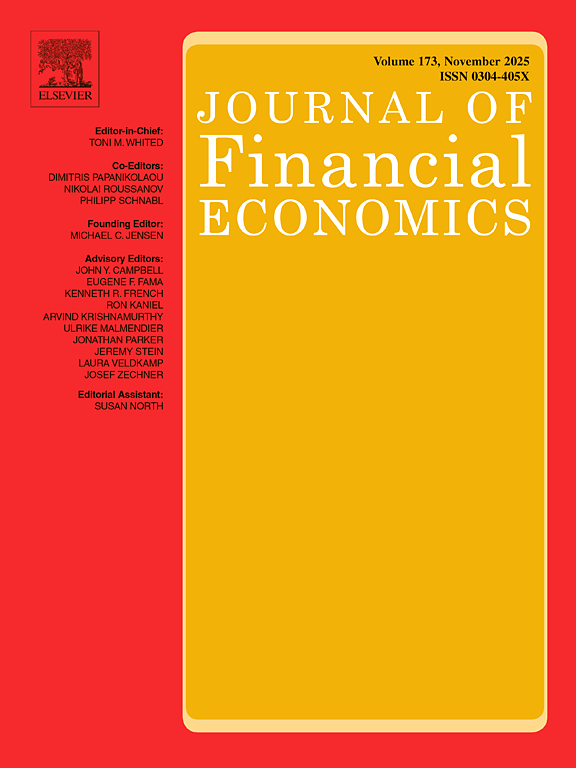-
作者:Mehrotra, Vikas; Morck, Randall; Shim, Jungwook; Wiwattanakantang, Yupana
作者单位:University of Alberta; National Bureau of Economic Research; Kyoto Sangyo University; National University of Singapore
摘要:We find inherited family firms more important in postwar Japan than generally realized, and also performing well on average. Non-consanguineous heir-run firms outperform blood heirs' firms, and roughly match founder-run listed firms, while blood heirs surpass professional managers at running family firms. Further, succession events suggest that adopted heirs cause elevated performance. We suggest that heir-run firms do well because non-consanguineous heirs displace the least talented blood hei...
-
作者:Agrawal, Ashwini K.; Matsa, David A.
作者单位:New York University; Northwestern University
摘要:This paper presents evidence that firms choose conservative financial policies partly to mitigate workers' exposure to unemployment risk. We exploit changes in state unemployment insurance laws as a source of variation in the costs borne by workers during layoff spells. We find that higher unemployment benefits lead to increased corporate leverage, particularly for labor-intensive and financially constrained firms. We estimate the ex ante, indirect costs of financial distress due to unemployme...
-
作者:Mencia, Javier; Sentana, Enrique
作者单位:Banco de Espana
摘要:We conduct an extensive empirical analysis of VIX derivative valuation models before, during, and after the 2008-2009 financial crisis. Since the restrictive mean-reversion and heteroskedasticity features of existing models yield large distortions during the crisis, we propose generalisations with a time-varying central tendency, jumps, and stochastic volatility, analyse their pricing performance, and implications for term structures of VIX futures and volatility skews. We find that a process ...
-
作者:Taylor, Lucian A.
作者单位:University of Pennsylvania
摘要:The level of Chief Executive Officer (CEO) pay responds asymmetrically to good and bad news about the CEO's ability. The average CEO captures approximately half of the surpluses from good news, implying CEOs and shareholders have roughly equal bargaining power. In contrast, the average CEO bears none of the negative surplus from bad news, implying CEOs have downward rigid pay. These estimates are consistent with the optimal contracting benchmark of Harris and Holmstrom (1982) and do not appear...
